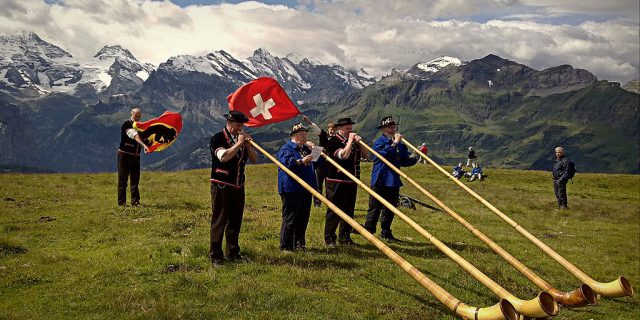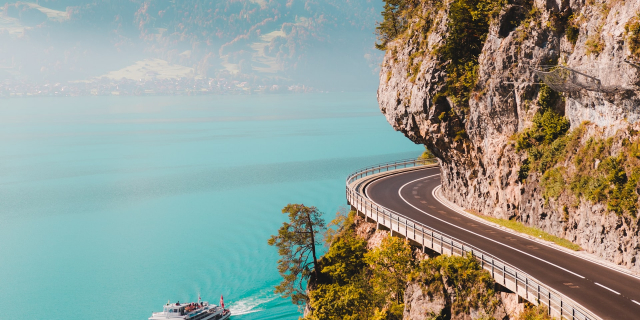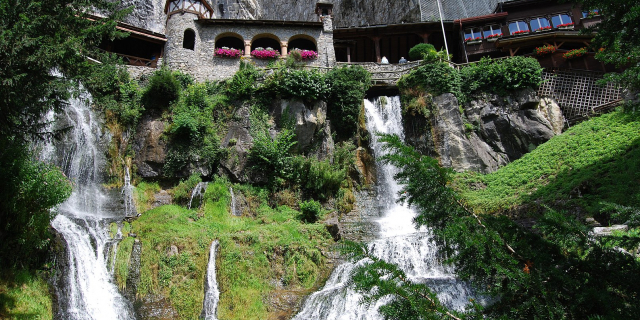Wengen (German pronunciation: [ˈvɛŋən] ) is a mountain village in the Bernese Oberland of central Switzerland. Located in the canton of Bern at an elevation of 1,274 m (4,180 ft) above sea level, it is part of the Jungfrauregion and has approximately 1,300 year-round residents, which swells to 5,000 during summer and to 10,000 in the winter. Wengen hosts the classic Lauberhorn ski races of the FIS Alpine Ski World Cup in January.
Wengen was first mentioned in official documents in 1268, and the origin of the name is unknown.
Primarily an alpine farming community, the village began to be visited by tourists in the early 19th century. Mary and Percy Bysshe Shelley's History of a Six Weeks' Tour and Byron's Manfred, in which the scenery of the area is described, were published in 1817. This literature became the advent of the modern tourism industry for the village.[1] Felix Mendelssohn, to whom there is a memorial above the village, also visited in the early nineteenth century.
Guesthouses and hotels began to be built in the mid-19th century, with the opening of the Launerhaus in 1859, with accommodation for 30 guests, and in 1880 the Pension Wengen was available to 100 guests.[1] The building and opening of the Wengernalpbahn in the 1890s made the village more accessible to tourists who previously had to walk up the steep slopes to the alpine village, opening the area for an expansion of tourism and the beginning of the ski industry.[2]
In the early 20th century, British tourists started ski-clubs in the area, beginning in the nearby village of Mürren. By 1903 Wengen had an Anglican Church and two years later, Sir Henry Lunn formed the Public Schools Alpine Sports Club with Wengen as a destination ski area for the members.[1] A British Methodist minister, Lunn first visited the area to organize a meeting of Protestant churches in nearby Grindelwald where he learned about winter sports such as skiing. He returned to the area in 1896 with his son Arnold, who quickly learned to ski, and both father and son realized the potential in the future of winter sports. The club was established a few years later. Members of the Public Schools Alpine Sports Club were required to have attended an English public school or one of the "older universities".[3] Wengen's Curling Club was established in 1911.[1]
The first ski races were held in the early 1920s with the British downhill championship held in 1921; the following year a ski race was held between Oxford and Cambridge.[4] These events were the first to have downhill races as opposed to Nordic races, which were held in other Swiss resorts. In Wengen, skiers requested use of the train system for access to the slopes; for some years trains were the earliest ski-lifts in the area.[5] Arnold Lunn used the natural terrain of the mountains for the courses; the downhill event followed the slopes above Wengen and was called the "straight down": skiers went straight down the mountain. Also during this period, Lunn invented, and introduced in Wengen, the first slalom race, in which skiers followed the terrain through the trees, replaced with ski gates in later years. These events are considered the birth of modern ski racing and Alpine skiing.[6]
From August 1944 to the end of World War II, Wengen served as a sort of open-air internment camp for allied prisoners, mostly US bomber crews. Since the only practical way in or out of Wengen was via the cog railway, it was difficult for internees to escape.[7]
































Add new comment